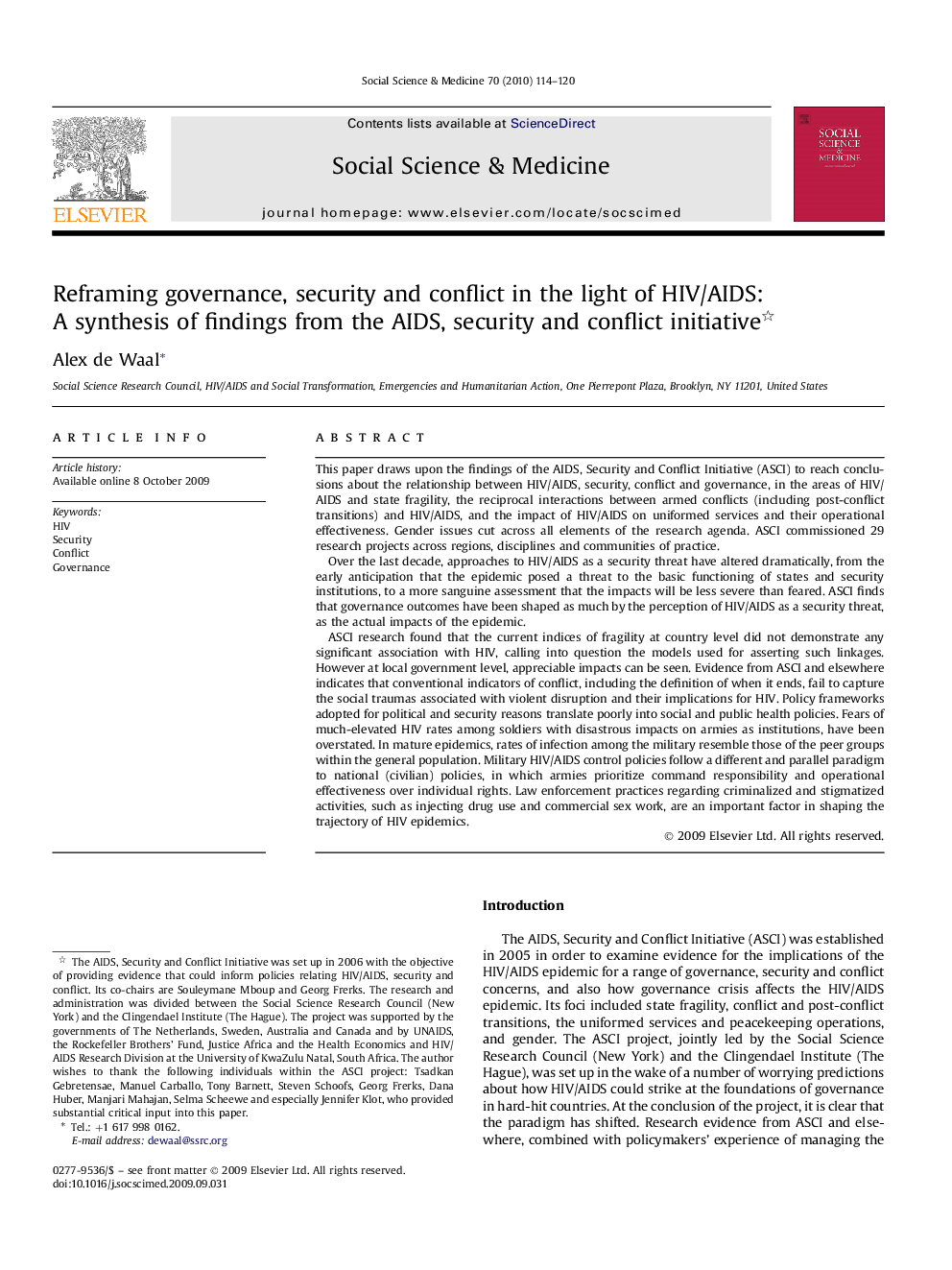| کد مقاله | کد نشریه | سال انتشار | مقاله انگلیسی | نسخه تمام متن |
|---|---|---|---|---|
| 953255 | 927575 | 2010 | 7 صفحه PDF | دانلود رایگان |

This paper draws upon the findings of the AIDS, Security and Conflict Initiative (ASCI) to reach conclusions about the relationship between HIV/AIDS, security, conflict and governance, in the areas of HIV/AIDS and state fragility, the reciprocal interactions between armed conflicts (including post-conflict transitions) and HIV/AIDS, and the impact of HIV/AIDS on uniformed services and their operational effectiveness. Gender issues cut across all elements of the research agenda. ASCI commissioned 29 research projects across regions, disciplines and communities of practice.Over the last decade, approaches to HIV/AIDS as a security threat have altered dramatically, from the early anticipation that the epidemic posed a threat to the basic functioning of states and security institutions, to a more sanguine assessment that the impacts will be less severe than feared. ASCI finds that governance outcomes have been shaped as much by the perception of HIV/AIDS as a security threat, as the actual impacts of the epidemic.ASCI research found that the current indices of fragility at country level did not demonstrate any significant association with HIV, calling into question the models used for asserting such linkages. However at local government level, appreciable impacts can be seen. Evidence from ASCI and elsewhere indicates that conventional indicators of conflict, including the definition of when it ends, fail to capture the social traumas associated with violent disruption and their implications for HIV. Policy frameworks adopted for political and security reasons translate poorly into social and public health policies. Fears of much-elevated HIV rates among soldiers with disastrous impacts on armies as institutions, have been overstated. In mature epidemics, rates of infection among the military resemble those of the peer groups within the general population. Military HIV/AIDS control policies follow a different and parallel paradigm to national (civilian) policies, in which armies prioritize command responsibility and operational effectiveness over individual rights. Law enforcement practices regarding criminalized and stigmatized activities, such as injecting drug use and commercial sex work, are an important factor in shaping the trajectory of HIV epidemics.
Journal: Social Science & Medicine - Volume 70, Issue 1, January 2010, Pages 114–120